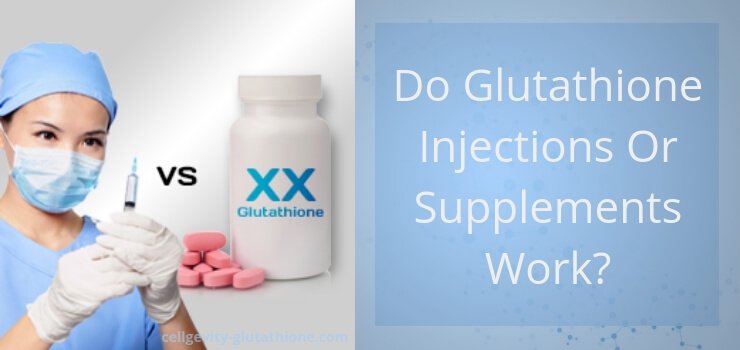
One of the most popular forms of glutathione therapy in recent years, has become the administration of IV glutathione into the bloodstream. While there are some immediate & short term benefits from having a powerful antioxidant like glutathione circulating, the cell doesn’t have a receptor to receive it.
And even though IV glutathione has been available for a number of years, it still remains very expensive. On top of this, within a few days intravenous glutathione is processed out of the body, providing little to no long-term impact. These short term effects mean that in order to maintain or raise glutathione levels, several injections per week would be needed. And at over $100 per injection, this makes it cost prohibitive for most people.
In addition to the cost, although intravenous glutathione does boost blood serum glutathione levels, it’s unclear as to how much of that actually gets inside the cell. It is most likely quite a small amount, because the molecule is too large to cross the cell walls and get into the cell, where it belongs and does it’s best work.
Whilst IV glutathione therapy has become popular for many different reasons, the reality is the benefits have a very short life span. Long term results are better achieved by providing your body with the precursors, so that it can make it naturally.
While you can buy glutathione pills, scientists and researchers have known for quite some time, that supplementation with whole glutathione makes little – to no difference at all.
It’s well documented that glutathione available in supplement form, is mostly destroyed through the digestive process. Therefore it is of little to no use, unless it can penetrate the cell walls.
A few other glutathione products have been marketed as supplements & patches, but all have made only a very small impact as far as raising glutathione levels intracellularly.
With oral supplementation, the best you could do was whey protein. A number of glutathione stimulators use high doses of un-denatured whey protein to provide the amino acid cysteine, which necessary for glutathione production.
If you take enough of it (several thousand calories a day), you might boost your glutathione levels somewhere between 10% to 40%, which is better than nothing. But you’re also having to deal with a huge caloric intake and drinking a LOT of whey protein, which is not a very practical solution.
In summary, glutathione supplements don’t have any value of any appreciable nature, so are pretty much a waste of time.
Your body has an amazing ability to heal itself. When you provide it with the correct resources, it knows exactly what to do with them. So in the case of raising glutathione levels, what it really needs are the building blocks (the correct ingredients) so it can do what it knows best. Which is to create this molecule naturally, inside its own cell.
SEE ALSO: What are the benefits of glutathione?
*Statements on this website have not been evaluated by the Food & Drug Administration. Please seek advice from a qualified medical professional before beginning any nutritional program. Cellgevity or other Max products are not intended to diagnose, treat, cure or prevent any disease.